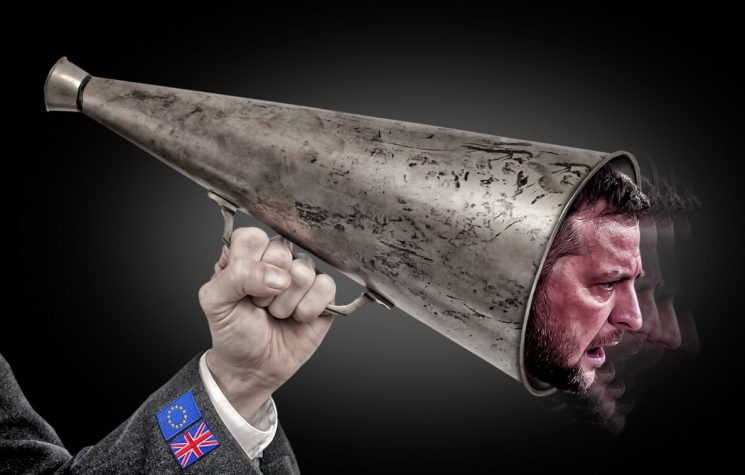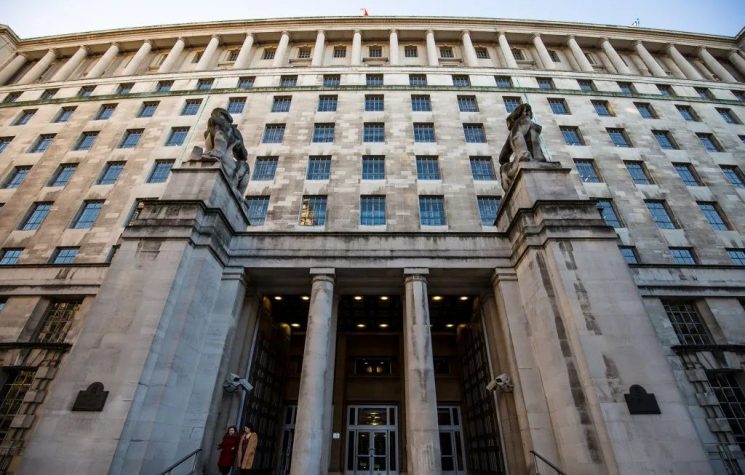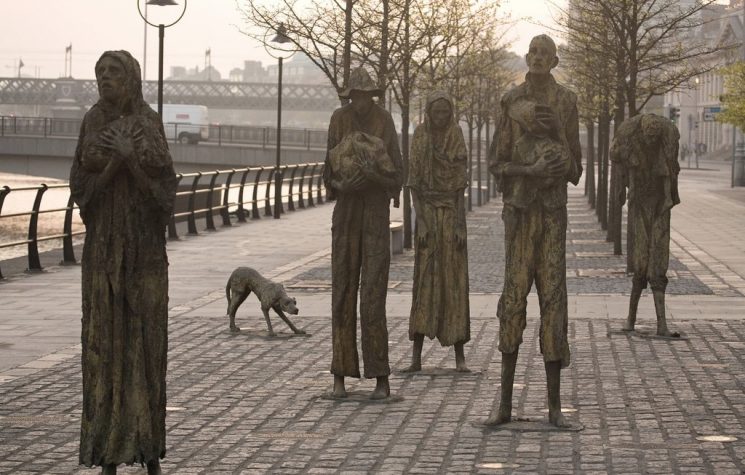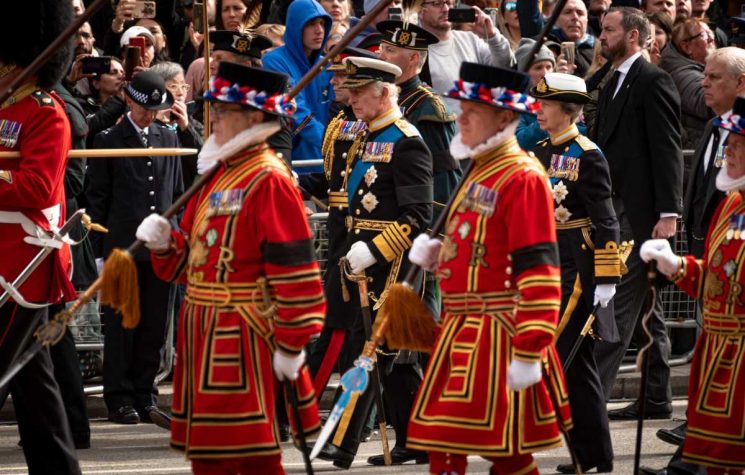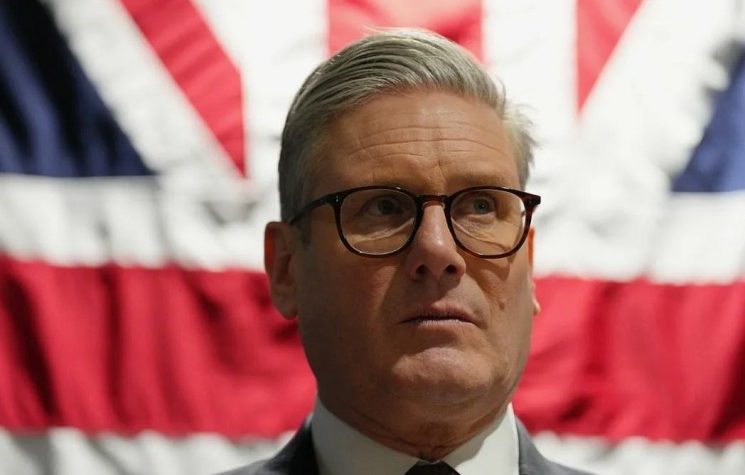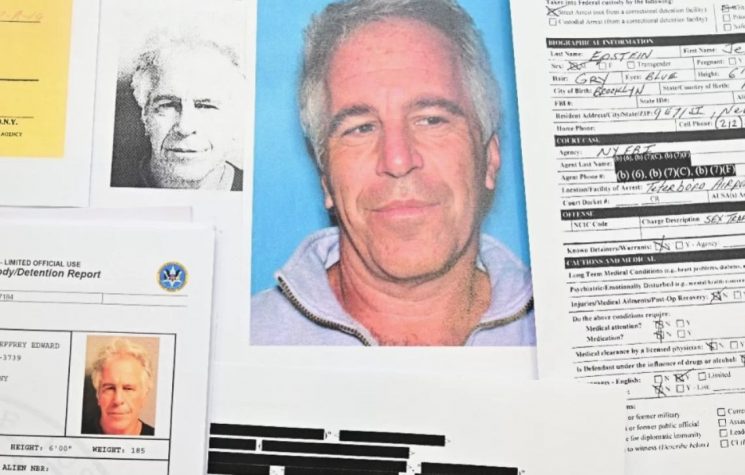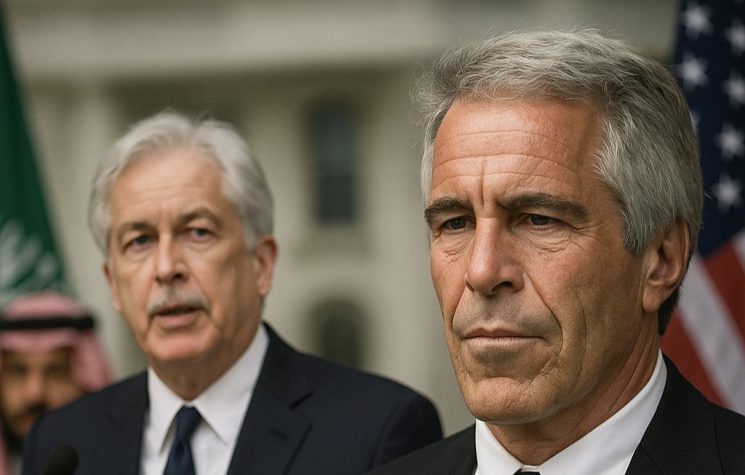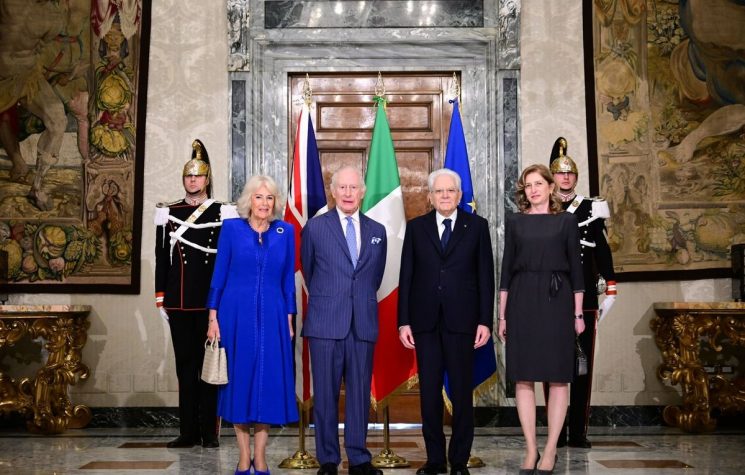Indisputably, Britain today does not resemble, even remotely, the country that over seventy years ago crowned as its Sovereign Charles’ mother, the late Queen
One almost feels sympathy for the good-for-nothing Charles, who seems determined on the Crown’s behalf to commit institutional suicide even before he formally ascends to the throne and his brief reign commences. After an interminably long and frustrating wait comparable to that of his predecessor Edward VII, errors of judgement borne of impatience should perhaps be treated leniently. However, Charles’ looney coronation plans demonstrate that after the decades he has had to prepare for his tasks and maturely think them through, he has in fact forgotten everything that his mother’s courtiers must have taught him, or, even worse, that he learned nothing from them. If this assessment is correct, he and his dynasty are destined for oblivion like the Bourbons, whose colossal obtuseness he is foolishly replicating.
To the extent that anyone is interested in the forthcoming coronation, the topic that has caught the imagination of the British public is not the act itself, but Charles’ gratuitous intent to rock the monarchy’s boat by radically reconfiguring the traditional coronation ceremony. To the consternation of many and strong disapproval of the Church of England, of which he will become the head once he is crowned, Charles has decided that for him it is too confining to be merely the “Defender of faith” (whatever even that may mean in the Anglican context). He now wants to extend his spiritual jurisdiction by acting as the “Defender of faiths,” in the plural. Before the obvious question is even raised, what exactly is that supposed to mean, Charles has supplied the answer. He wants to scrub the unmistakably Christian character of the traditional coronation ceremony and to substitute for it a rite that would be a pot-pourri of diverse “faiths” that henceforth the British monarch should presumably act as the defender of.
Indisputably, Britain today does not resemble, even remotely, the country that over seventy years ago crowned as its Sovereign Charles’ mother, the late Queen, and no one in their right mind would assert that the changes have been for the better. As British writer Paul Kingsnorth frankly points out, Britain now is a post-Christian society (a situation Kingsnorth has been fortunate to escape by becoming an Orthodox Christian). It is true that British society now consists of numerous non-Christian constituencies, that religious indifference and dabbling in eastern and sundry cults are rampant, and that those who still profess the Christian faith (and Anglicanism in particular) are a small and timid minority. But will it help Charles and the monarchy to secure their position in a changing world if in the maniacal quest for relevance the king insists on dissolving the historic identity of the very institution he personifies?
Another way of putting the same question is to ask of what benefit has it been to the Catholic Church to pursue relevance by removing the props from under its traditional teaching and practice? The answer is self-evident today, sixty years later, in the form of the disarray into which that ancient institution has collapsed.
Sober minded Britons, who still care about the preservation of their country’s traditions and its cultural coherence, are trying to tell Charles as much. The monarchy by definition must be anchored in tradition, which makes it incompatible with modernity. Moreover, as even the avowed unbeliever but staunch traditionalist, royal historian Prof. David Starkey (who with British humour described himself as a “High-Church atheist) cogently points out, “the coronation is utterly and absolutely explicitly Christian in the sense of the body of the service.” Theologian and believing Christian Dr. Gavin Ashenden ominously agrees with Starkey that should Charles frivolously contaminate his coronation liturgy with invocations of other “gods” and “faiths,” he will be cutting the monarchy’s roots from Jesus, “at his own peril.” Disillusioned British armed forces veterans are considering breaking their oath should such an abomination ever come to pass. That over half of polled Britons are unwilling to pay for Charles’ coronation from the public treasury certainly adds to the awkwardness of the festivities, but it is the least of the king’s problems right now.
The tempest which Charles’ ill-advised and ill-timed tinkering with tradition is causing suggests that at least a part of the British public are not brain dead. It is encouraging testimony that there still are some glimmers of hope that England may not be entirely lost. Its spirit surely is broken however if hare-brained ideas that only recently no sensible member of the British Establishment would have dared to whisper are now casually bandied about, and in the highest circles.
That it is even conceivable that Shiva or Gaia might be honoured with equal reverence that is accorded to Jesus Christ, in this or some future British coronation, indicates the gravity of the moral and identitarian crisis that is eroding the foundations of the once seemingly impregnable British system of custom and governance. Whether the new “Defender” upholds or discards the objections of the Church of England, a body whose own fidelity to tradition and moral and theological rectitude leaves far too much to be desired, the suggestion has been tabled and the genie has now been let out of the bottle. And that was done precisely by the party who should have been the most keenly interested to keep it safely in.
What all this plainly amounts to is a breakdown of the system, from the very pinnacle on down.
The simple truth is that under the allure of modernity the royal family’s disintegration began while the late Queen, who probably was the last model of selfless and unconditional service the British monarchy will ever again produce, was still alive. Her unworthy progeny have failed dismally and in every sense to emulate her. The Queen was a creature of transcendence and tradition, her children and grandchildren are creatures of shallow modernity and spoiled narcissism. Not a single one of them has managed to carve out a useful role or to find a stable partner with whom to maintain an enduring marriage. Their lurid scandals have brought the institution they represent into irreparable disrepute. Indeed, as has Charles, the current head of that dysfunctional household, they also, and without exception, have succumbed to the siren call of modernity, which inevitably brings the monarchy to ruin.
It would be inaccurate to say that the disarray evident in the top echelons is proof that the Perfidious Albion is no more. Elements of the nefarious machine that has brought death and misery to many nations will continue to function to the detriment of mankind for a while longer, or at least until a well-aimed Poseidon puts Britain out of its misery. But the human factor, which had once made Britain “great” although in the most negative sense of that word, is now in full and irreversible decay.
The imbecility of the ruling class makes the established system unsustainable. It would be a mistake to underestimate its remaining potential for wickedness, but it would also be an error to attribute too much to it based on past, unrepeatable exploits. Professor Panarin naively committed that error when he suggested that Harry’s ostensible separation from the royal family and migration to the West Coast with his stupid wife (compared to Meghan, Wallis Simpson was a sophisticated intellectual) is actually more than meets the eye, a clever intrigue, cover for a secret mission entrusted to him by MI6.
No, there is a more natural hypothesis to explain it. Harry is not a secret British operative on a mission but an incompetent moron, like the rest of his royal relatives and fellow members of the Establishment. He is not on confidential assignment and has no covert mission to perform. His actual and very public mission, like that of his presumed father and his half-brother, is to complete Britain’s self-destruction.













